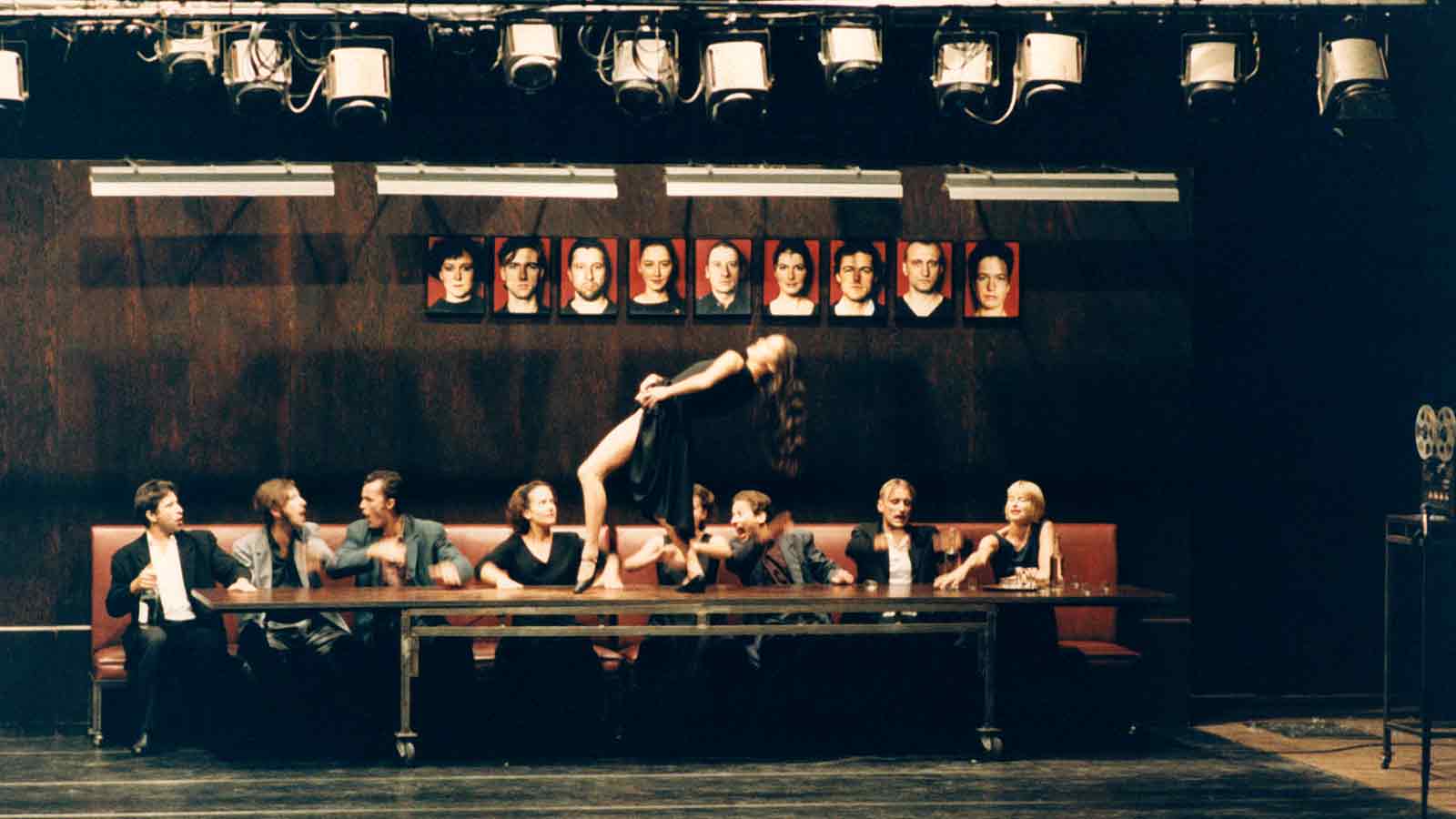Encontros ACARTE – New European Theatre/Dance
“Come to the Encontros ACARTE and join us for a ten-day holiday”. This was how Madalena de Azeredo Perdigão, director of ACARTE – Animation, Artistic Creation and Art Education Department, announced the first edition of the Encontros ACARTE, held in 1987.
From 10 to 19 September, the festival presented thirty performances (“fun, adventurous, exciting and controversial”) and seventeen other events: panel discussions, debates, mini-concerts, and opportunities for audiences to meet artists and performers, spread over all the Gulbenkian Foundation’s venues.
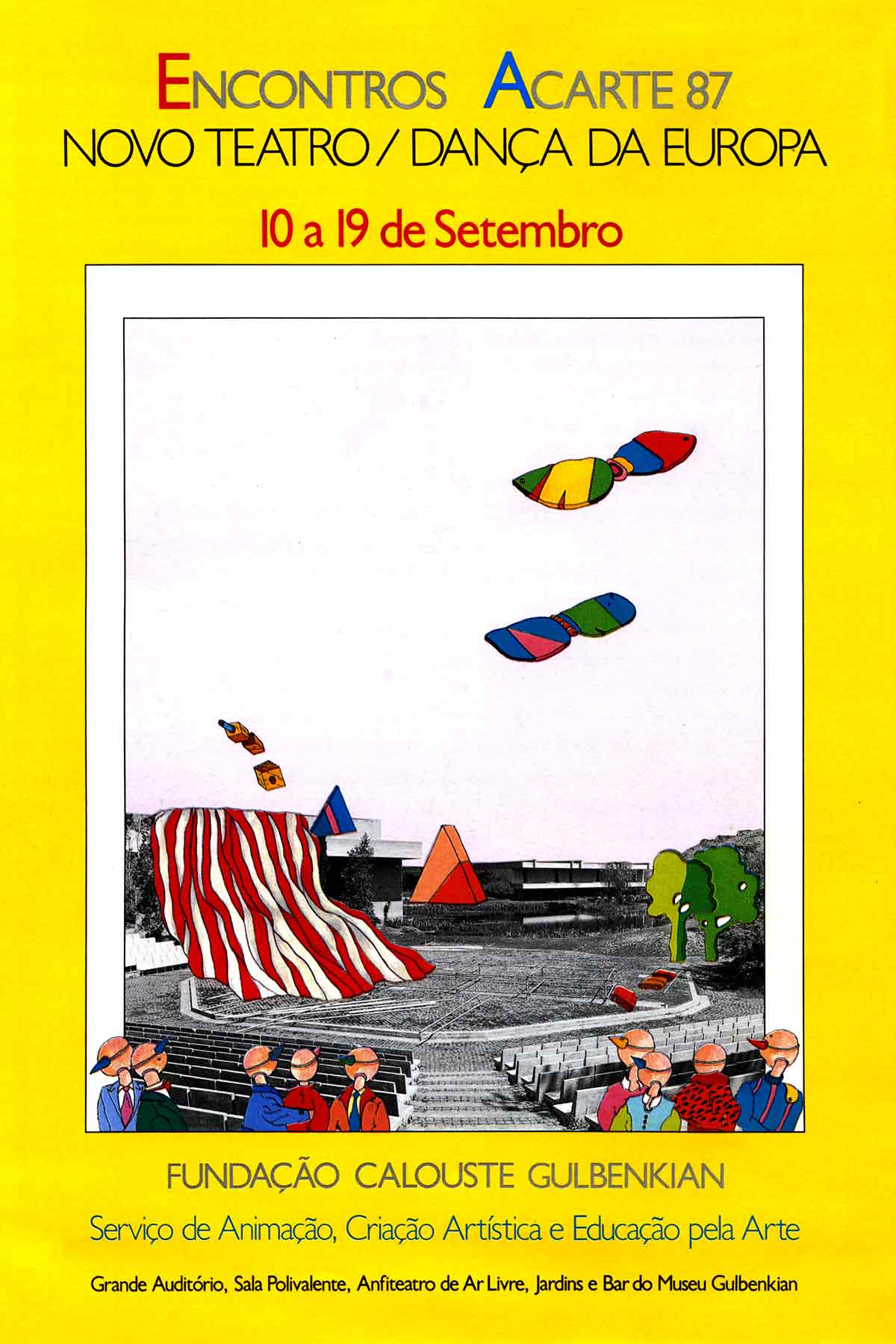
The idea that gave rise to the first Encontros ACARTE grew out of a proposal submitted to ACARTE by George Brugmans and Roberto Cimetta, artistic directors of the Spring Dance Festival and INTEATRO Festival in Polverigi, in the course of 1986. The plans for the festival were geared to a cultural policy that celebrated European diversity.
Portugal had recently joined the European Economic Community, meaning the time was ripe for this type of initiative, and the Gulbenkian Foundation was ideally placed to stage the event. It would offer Portuguese audiences and artists a chance to encounter the latest in European theatre and dance, whilst also turning a spotlight on new developments in the arts in Portugal.
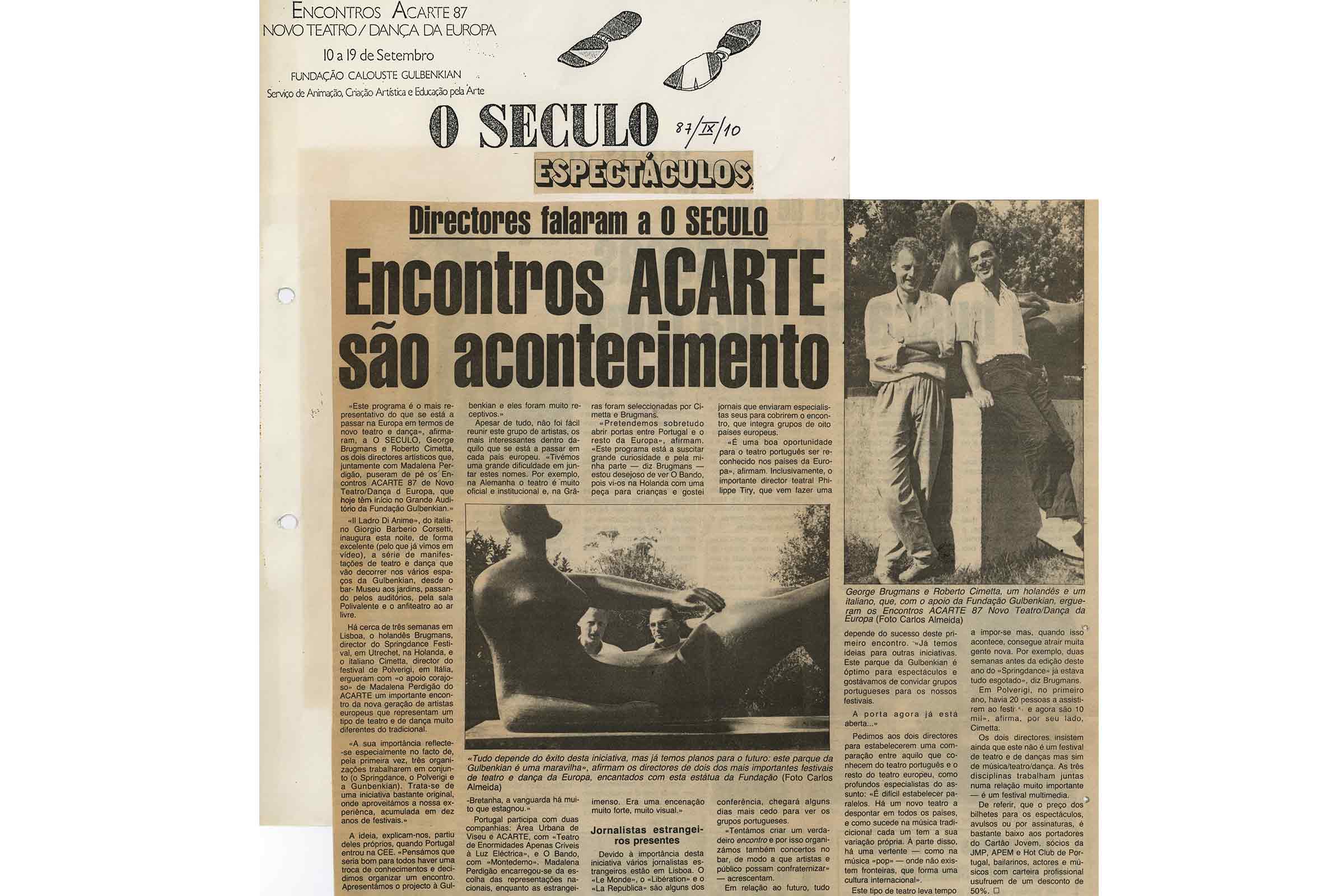
The director of ACARTE welcomed the idea and got straight down to work on preparing the Encontros. The three artistic directors – Madalena de Azeredo Perdigão herself, George Brugmans and Roberto Cimetta – sought out the best and most original offerings at that time in the performing arts.
The choice of foreign artists was entrusted to Brugmans and Cimetta, although subject to endorsement by the Theatre Advisory Board, set up to advise ACARTE and comprising its director, Luís Francisco Rebello, José Barata, Norberto d’Ávila and Carlos Wallenstein. ACARTE itself was responsible for choosing the Portuguese artists.
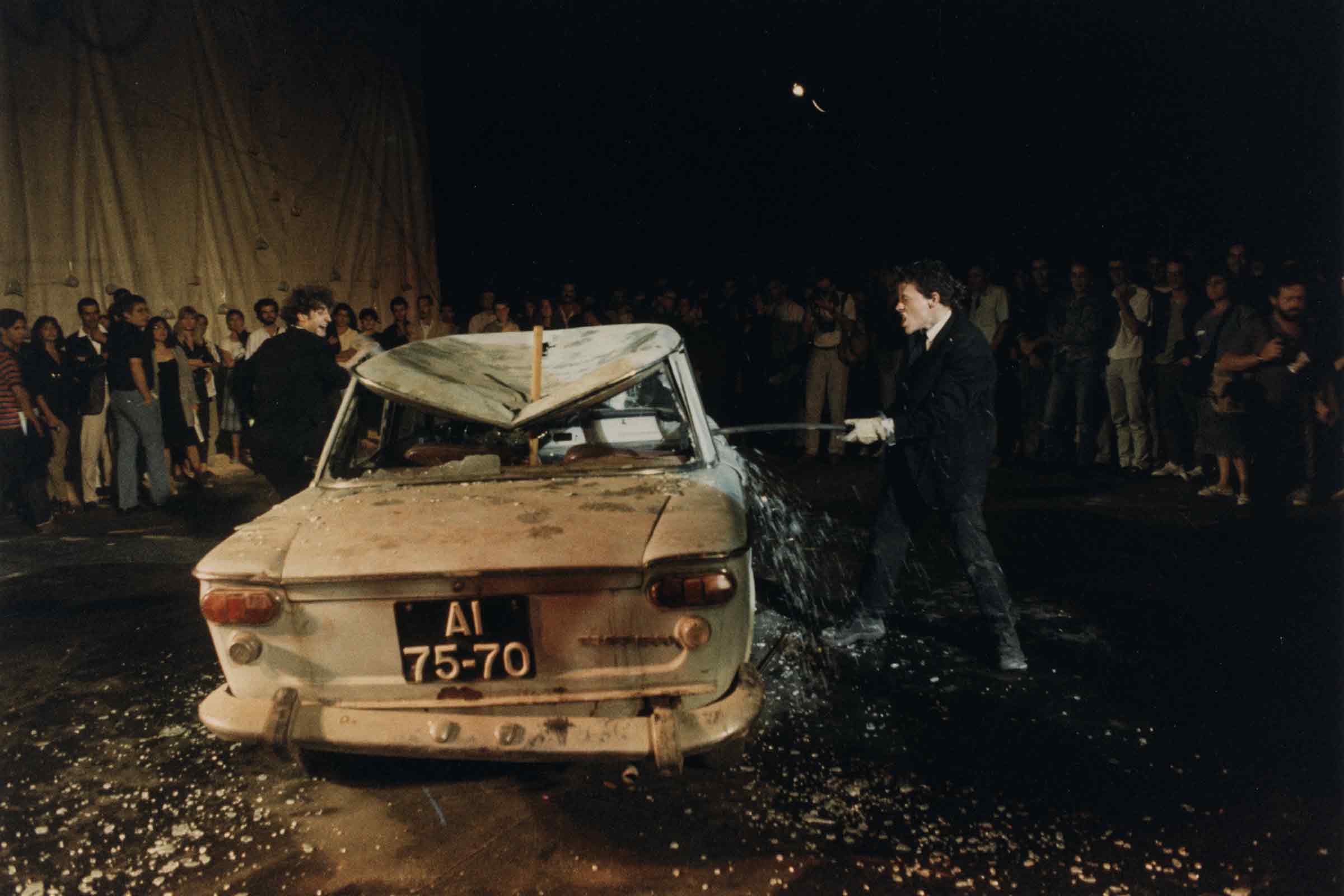
Twelve different companies were selected, representing eight countries in all: Compagnia Giorgio Barberio Corsetti, Adriana Borrielo and Sosta Palmizi (Italy), La Fura dels Baus (Spain), Needcompany and Compagnie Vim Vandekeybus (Belgium), Pauline Daniels (Netherlands), Pocket Opera Company (West Germany), Groupe Emile Dubois (France) and Bow Gamelan Ensemble (United Kingdom).
The Portuguese companies chosen were Área Urbana, in a co-production with ACARTE, and O Bando. Other names featured in the Encontros were Constança Capdeville, in the organisation of the mini-concerts, and Bernard d’Arcier, Moises Perez Coterillo, Jan Middendorp, Bernard Raffalli, Phillipe Tiry, Eugénia Vasques, Carlo Infante and Neil Wallace, in the series of talks and debates.
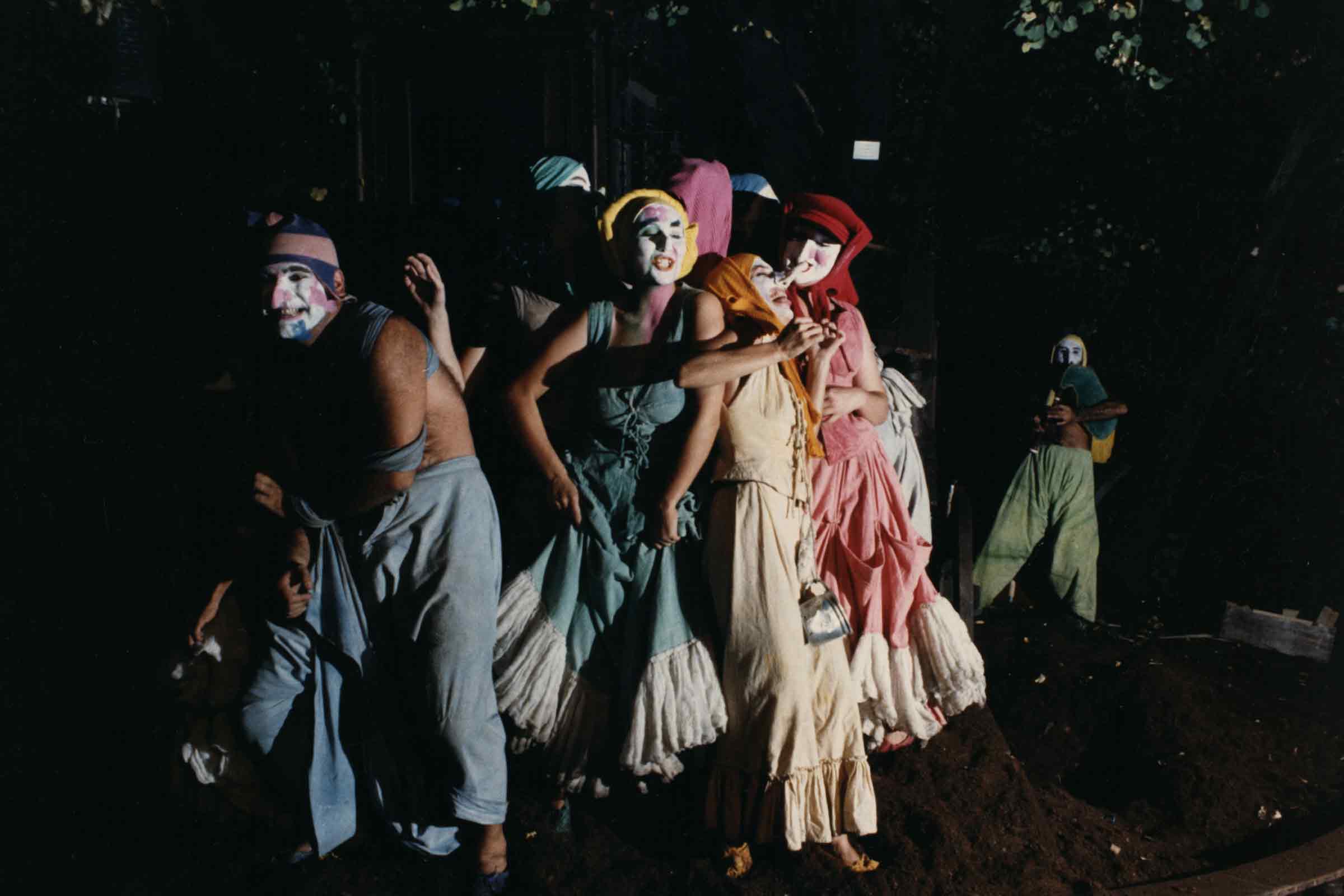
Championing ACARTE’s aims of “contributing to the development of creativity, to progress in education through art and to furtherance of artistic creation in Portugal”, the Encontros proved to be pioneering. In their very first year, they embodied a multicultural spirit and an outward-looking attitude, breaking new ground by embracing artistic avant-gardes and including other forms of expression and artistic genres. The festival presented companies and groups little known at the time, but which grew to be leading names in the decades that followed.
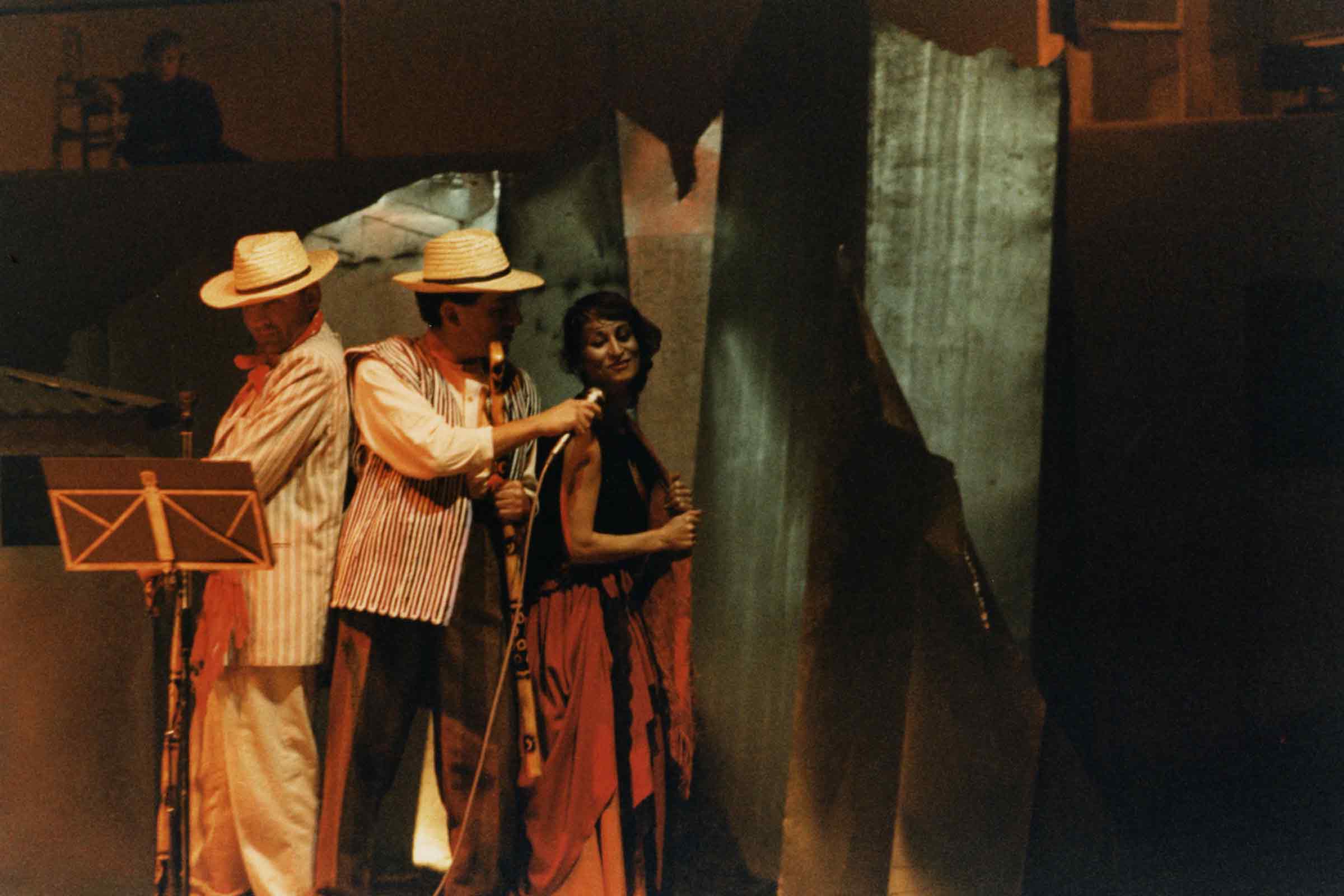
The Encontros ACARTE continued to be held until 2001, experimenting different formats under succeeding artistic directors – José Sasportes (1990 to 1994), Yvette Centeno (1995 to 1999) and Jorge Molder (2000 to 2002). As one of ACARTE’s most ambitious cultural ventures, and above all because of their commitment to an “innovative circuit, featuring an experimental approach”, away from the “safely beaten track of traditional arts organisations”, the Encontros ACARTE came to be a landmark in the performing arts in Portugal, and one of the most enduringly memorable initiatives in the history of the Calouste Gulbenkian Foundation.
From the Archives
Significant moments in the history of Calouste Gulbenkian and the Gulbenkian Foundation in Portugal and around the world.
